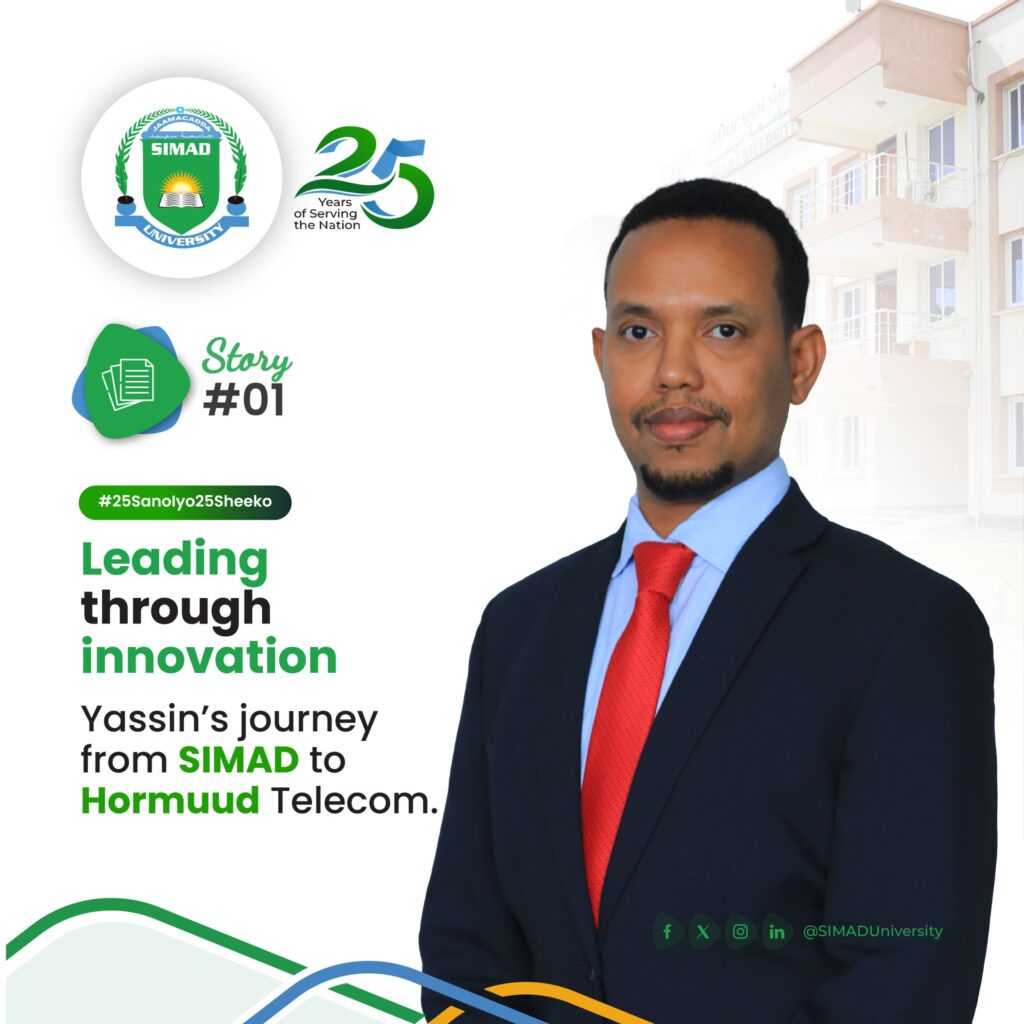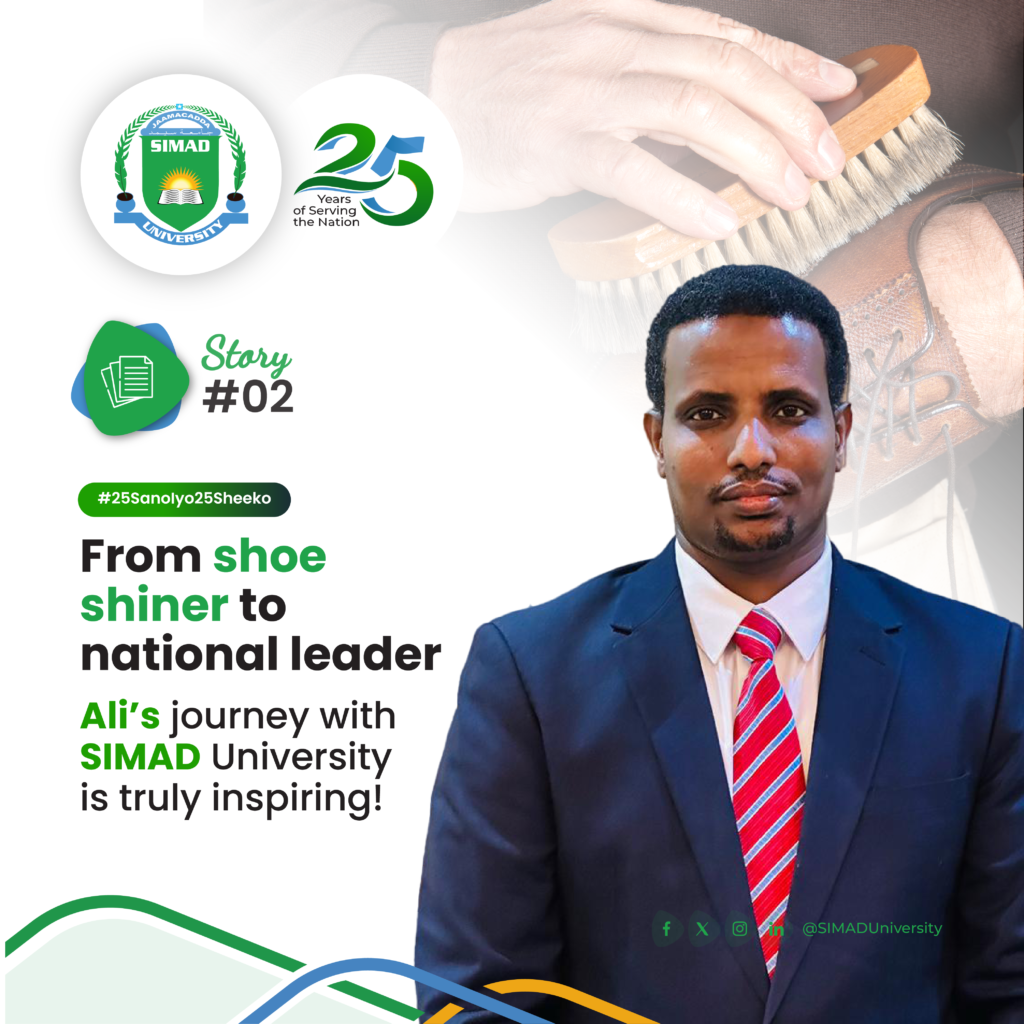Mohamed Abukar Zubeyr began his academic journey at SIMAD University in 2004, joining the Faculty of Business Administration and graduating in 2008. Immediately after, he started lecturing at SIMAD, contributing to the university through various roles. His dedication and high academic performance earned him a master’s sponsorship from SIMAD, which took him to Malaysia. After completing his studies, he returned to SIMAD, where he held the role of Director of Public Relations and Publications while teaching various subjects across faculties.
Mohamed’s career trajectory shifted as he became involved in trade union activism, becoming the president of the Federation of Somali Trade Unions (FESTU). His work in labor rights advocacy took him across Africa, representing Somali trade unions on the international stage. Later, he joined the Somali Bank for Development and Reconstruction and took on part-time roles with the Central Bank before fully transitioning into governmental roles.
In 2014, he began his governmental career at the Ministry of Justice and Constitutional Affairs as Director of Planning and Institutional Development. His commitment led him to the position of Director General of the Ministry of Constitutional Affairs, where he actively participated in reviewing the Somalia Provisional Constitution. He collaborated with several ministers, including His Excellency Farah Sheikh Abdulkadir, SIMAD University’s founding father, and others who are now prominent figures in Somali politics.
In a significant career milestone, Mohamed served as the Permanent Secretary at the Office of the Prime Minister, one of the highest-ranking positions in Somalia. Together, they worked in President Hassan Sheikh’s political party before Mohamed’s tenure as Permanent Secretary.
Recently, Mohamed Abukar Zubeyr was appointed as the Ambassador of the Federal Government of Somalia to Russia. This diplomatic role marks a new chapter in his career, reflecting Somalia’s efforts to strengthen international relations. His appointment is expected to further enhance Somalia-Russia diplomatic ties, enabling collaboration on economic, security, and development fronts.
Mohamed describes his leadership style as “situational,” shaped by the dynamic and often unpredictable nature of African politics. This adaptability helped him navigate the complex political landscape, transitioning from academia to governance. He attributes his political ambitions to his family, especially his late uncle, a former Member of Parliament who inspired him from a young age. Mohamed’s ultimate goal is to reach the presidency, and his journey reflects a strong vision and determination despite challenges like nepotism.
He takes pride in the accomplishments of SIMAD alumni, recognizing the university’s significant role in his achievements and expressing gratitude for the education and opportunities it provided


